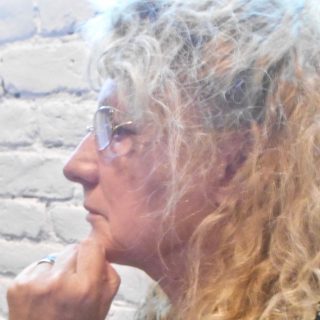I have listened all my life to the stories of women who survived the war. As a four-year-old girl, I also passed through the refugee column. I witnessed how mothers, daughters, aunts, grandmothers, and friends remember those moments and images; how these women so bravely and so often experienced fear and suffering in silence, left to struggle with their traumas on their own.
In the public sphere, little was said about how women suffered the terrible consequences of the war. We know a lot about men – they were the ones most often on the battlefields, either by choice or by force. Men were also in prisons, camps… But women were the ones who quietly, with a lump in their throats, lived through that storm, taking care of their loved ones.
When two women, who were girls at the time, delivered public speeches about their experience as refugees in the middle of Operation Storm, they caused a great public uproar. One was Anja Šimpraga, a parliamentary representative of the Independent Democratic Serbian Party. In 2020, she told her story before of the Croatian Parliament. The second was Sanja Vulić, who delivered a speech in Novi Sad last year, at the commemoration dedicated to the memory of all the Serbs who died in the Storm and those who were exiled.
Anja Šimpraga was eight years old when she fled Knin with her family during Operation Storm. In her emotional speech before the Parliament she conveyed her experience and spoke of the path of unity that she would like us to take in the future. Following her speech, Anja received a round of applause from the majority of her colleagues from the Parliament. However, there were also those who only heard words that burned their ears and called her out for speaking Serbian. Anja returned to Croatia with her family and continued to live and study there. Nowadays, she is the Vice President of the Government of the Republic of Croatia.
Sanja Vulić from Dvor gave a similar speech at the commemoration in Novi Sad. She recounted how as a twelve-year-old girl she experienced uncertainty and fear about going towards the unknown with her family. Sanja stayed in Serbia, which she considers her country now.
I chose to highlight the speeches of these two women because when it comes to the experiences of Operation Storm and the refugees, women talk about it the least because they are asked about it the least. Their voices are silenced.
These are the voices of little girls who traveled for days with their parents, brothers, sisters, grandparents, and relatives, who faced terrible conditions on the road, and lived through the uncertainty of their parents, without understanding what was actually happening. These are the girls whose youth was interrupted, whose lives, friends, loves, school books, and memories were left behind in the place where they grew up. During those sensitive teenage years, they came to a new environment where they had to fit in. They were old enough to be aware of the suffering of their mothers and fathers, and had to deal with the challenges of life, with all the changes that growing up brings, adapting to a new environment, and not giving their parents additional worries.
These are the voices of grown-up women, with or without families, who also suffered the consequences of the competition between men in power and their egos. These women carried that pain inside them all that time, mostly in silence. They were completely innocent, and yet had to leave behind their homes, come to a new country, build a new life in it, and find themselves. Quietly and without too much complaining, aware that there are always those who are worse off.
These are the voices of mothers, who had to take care of their children not knowing where their husbands and other relatives were; expecting news from the battlefield, fearing the worst. Yet, they kept their composure so as not to pass on to the children the worry they were carrying on their shoulders.
These are the voices of the grandmothers who left their homes late in life, some of whom even lived through the war for the second time, despite having thought that the great world war had marked the end and brought peace to these areas. Sick in their old days, they again collected a few of their belongings and went towards the unknown, leaving behind their lives, animals, land, and everything they had created over years lived in poverty.
There were also those who decided to stay behind because they did not want to leave their homes. They were mostly elderly women, who stayed in their houses with their husbands or alone, while their children went towards the unknown. They stayed there thinking “well, we didn’t do anything to anyone, no one will harm us because we don’t pose a threat.” They stayed there worrying about their loved ones who had left and could not even call to check if they were all right, or if they were alive. They waited to hear at least some news. Old and weak as they were, they too suffered terrible abuses in the hand of the army or paramilitary groups. They were made to jump into wells or were killed alongside their husbands on doorsteps, left there for someone to find their bodies. Those who survived suffered mistreatment, watched strangers take their belongings, and their neighbors’ houses burn. They tried not to provoke, but even that did not help some of them.
Countless stories of these women have never been publicly told. Surrounded by these stories all my life, I often listened to them. I encountered such stories also as a journalist. I remember a mother from a place near today’s Hrvatska Kostajnica who lost her mother and her son with disabilities during Operation Storm. On the first day of the Storm, she escaped with her husband and two other children, while her mother had not wanted to go; she had wanted to stay in her house. Her son, very attached to his grandmother, had wanted to stay with her. At the time, no one even imagined that they would not return soon. Yet everything turned out differently, and they remained in Bosnia, without knowing what had happened to their loved ones. Then they received the worst news: an elderly woman and a child with disabilities had been killed. The perpetrator will never be known. That woman now lives with her family in the same small town, opposite the house where her mother and son were killed. I remember the sadness in her eyes and what she told me while as was taking us to the grave of her loved ones: “It’s a shame you don’t live a little closer so we could have coffee and talk.”
We are often unaware of how much support women who survived such horrors, even those who did not lose loved ones in the war, needed, or how the extent to which this society failed to think about them and failed to provide them with help, except for certain activists. Most of the women did not receive any psychological help or understanding. Most of them were never asked how that life trauma affected them.
I grew up in such an environment, among such brave women, who buried those traumas within themselves or continued to fight against them. I spent time with girls and women who survived being refugees and all that it brought. I listened to them tell me how upon arriving in Serbia they did not have money any to buy something for themselves. They did not go on school trips, they did not wear the clothes they liked, and they were discriminated against in the society among their peers because they were wearing clothes from charity. I have also heard a lot about that miserable refugee column. And every person I know has their own story, apparently the same, but still unique. Every person remembers those moments or remembers them through the stories of their elders.
These stories show us how neglected the female perspective is. They show how traumas will mostly remain unhealed and buried somewhere deep inside them, and for some, these traumas affected their health and left lasting consequences.
The rest of us who lived through it can have different experiences and thoughts than Anja and Sanja, who told their stories out lout. We can feel differently now and look at that war with different eyes. However, as long as the Storm is seen exclusively from a male perspective and from the perspective of those in power, from the perspective of a few “emperors who played war”, we will never reach the deepest traumas and pain that people felt. And human suffering will remain secondary in these debates – who started first and who is the aggressor and who is the victim. We were all victims, innocent women, men, children and the elderly, and maybe it is time to look at war with those eyes. Maybe it is time to see women’s suffering in stories like Anja’s and Sanja’s, and hear about the many other women who were the least to blame for the wars. Just because they were not on the battlefield does not mean that they were not wounded.
Maša Samardžija is a student of journalism at the Faculty of Political Sciences in Zagreb. In the recent years, she cooperated intensively with the civil sector and dealt with minority issues in Croatia. She worked at the Serbian business association Privrednik in Zagreb on numerous projects that promote the rights and inclusion of the Serbian community. She is currently a freelance journalist and works with several media outlets in Croatia.




